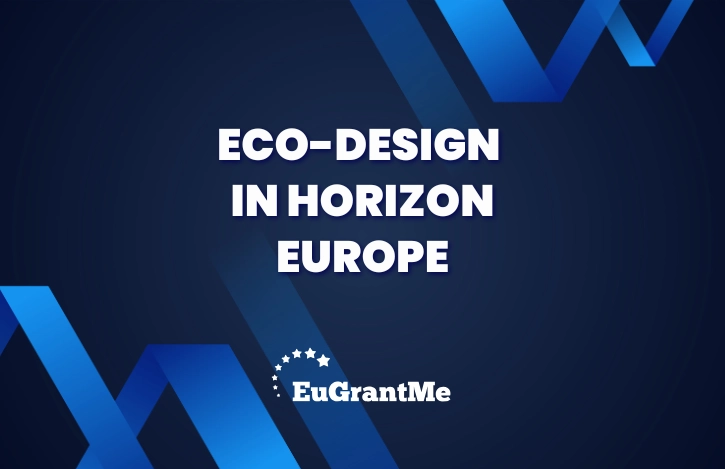Sustainability is a key focus of European policies. Eco-design in Horizon Europe supports innovation that reduces environmental impact and promotes circular economy principles. Products and processes must be resource-efficient and environmentally friendly.
The programme funds research and development to create sustainable materials, improve energy efficiency, and minimise waste. Companies and researchers align their projects with EU goals for a greener economy. Eco-design plays a crucial role in shaping future technologies and industries.
The Role of Eco-Design in European Policy
Eco-design is a vital part of the EU’s sustainability agenda. It integrates environmental considerations into product development, ensuring sustainability from the design phase. The European Green Deal highlights eco-design as a tool to achieve climate neutrality.
Horizon Europe promotes eco-design through funding opportunities and regulatory support. Policies encourage life cycle thinking, addressing environmental impact from raw material extraction to disposal. Businesses that adopt eco-design contribute to a circular and low-carbon economy.
Principles of Eco-Design
Eco-design follows several principles to enhance sustainability. It focuses on reducing material and energy consumption while maintaining product functionality. Longevity and reparability are also key aspects, preventing early obsolescence.
Sustainable materials play an essential role in eco-design. Renewable, biodegradable, or recycled materials reduce environmental impact. Horizon Europe supports research into new materials that replace harmful substances with greener alternatives.
Another key principle is energy efficiency. Products designed for lower energy consumption contribute to climate goals. Smart design choices in manufacturing also optimise energy use, further reducing emissions.
Circular Economy and Resource Efficiency
Eco-design aligns with circular economy principles. It encourages designing products that last longer, can be repaired, and are easy to recycle. This approach minimises waste and conserves resources.
Horizon Europe funds projects that develop circular solutions. Sustainable production models, reuse strategies, and closed-loop systems support the transition away from linear consumption patterns. Circularity reduces dependency on raw materials and lowers environmental impact.
Resource efficiency is another priority. Minimising raw material use and promoting waste reduction improve sustainability. Businesses that adopt efficient manufacturing processes benefit from lower costs and environmental compliance.
Eco-Design and Innovation in Industry
Industries across Europe integrate eco-design to comply with regulations and market demands. Sectors such as construction, electronics, and textiles develop sustainable solutions to reduce their footprint. Horizon Europe provides financial support for these innovations.
Smart technologies enhance eco-design. Digital tools, artificial intelligence, and data analytics optimise product development. Companies can assess environmental performance and improve sustainability outcomes.
Eco-design also supports industrial symbiosis. Businesses share resources and by-products, reducing waste and increasing efficiency. Horizon Europe promotes collaborative projects that enhance industrial sustainability.
Regulatory Framework Supporting Eco-Design
The EU has strict eco-design regulations. The Ecodesign Directive sets performance standards for energy-related products. It ensures that sustainability is a core part of product development.
Extended Producer Responsibility (EPR) is another key regulation. Companies must consider the environmental impact of their products throughout their lifecycle. Compliance with these regulations aligns businesses with Horizon Europe objectives.
Sustainability reporting and labelling also play a role. Transparency in environmental impact helps consumers make informed choices. Businesses integrating eco-design gain competitive advantages in sustainable markets.
Challenges in Implementing Eco-Design
Despite its benefits, implementing eco-design presents challenges. High costs for sustainable materials and technologies can be a barrier. Small businesses may struggle with investment in green innovation.
Regulatory complexity is another issue. Businesses must navigate different sustainability requirements across sectors. Horizon Europe offers guidance and funding to overcome these difficulties.
Consumer awareness also affects adoption. Demand for sustainable products is growing, but market education remains necessary. Policies promoting eco-labels and incentives encourage wider acceptance.
Future of Eco-Design in Horizon Europe
Eco-design in Horizon Europe will continue evolving. The EU’s commitment to sustainability strengthens research and development in this field. Funding opportunities will expand to support innovative projects.
Advances in digitalisation and smart manufacturing will enhance eco-design applications. Emerging technologies will help industries optimise resources and reduce waste. Circular business models will become more widespread.
Eco-design remains a key driver for sustainable economic growth. European companies embracing these principles will lead the transition to a greener future. Aligning with EU policies ensures long-term success in competitive global markets.
At EuGrantMe, we are passionate about fostering innovation and empowering ambitious minds to flourish. Our mission revolves around providing top-notch grant writing services for the EIC Accelerator and Horizon grants in Europe. We enable our customers to unlock the full potential of their ground-breaking ideas.
Do you have a project to turn into reality?
Contact us!


